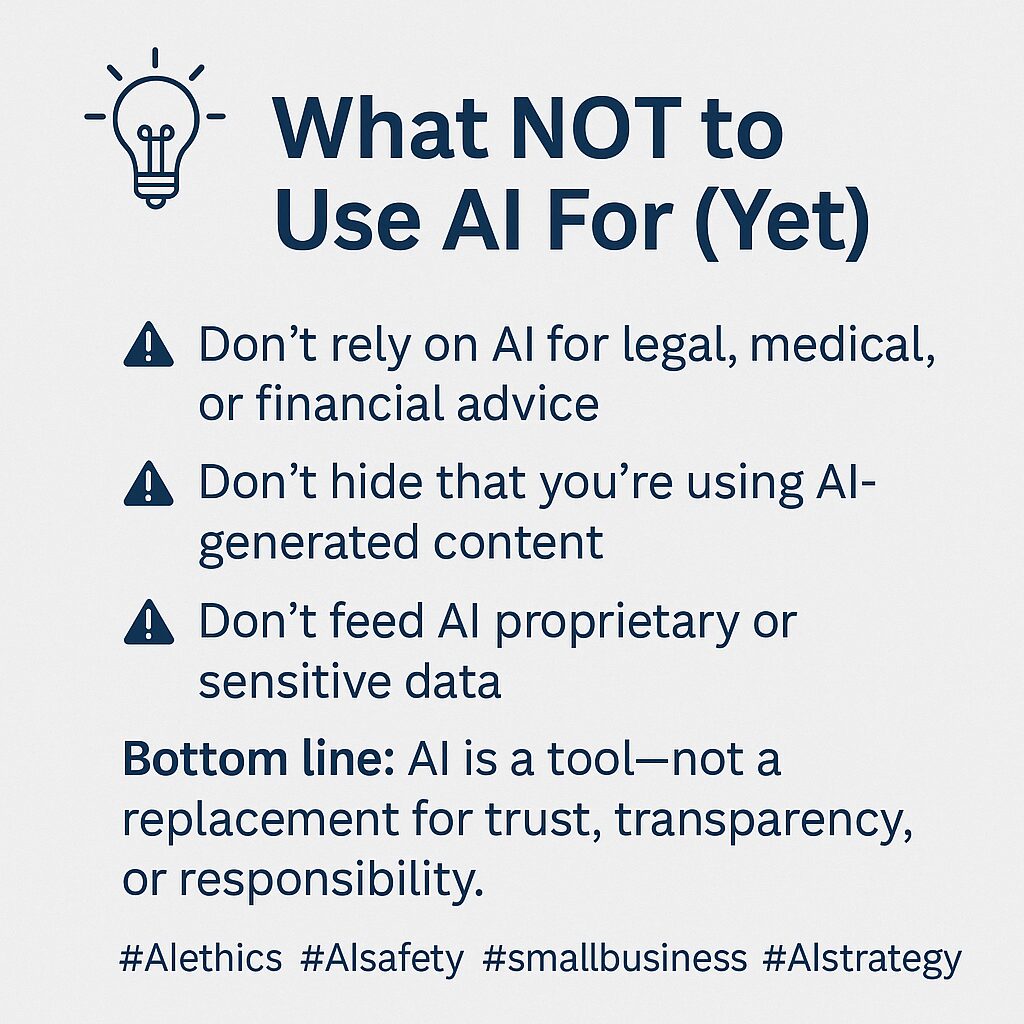AI Legal and Ethical Risks - 9 of 10
DSTech Solutions | Making AI Practical for Small Business
⚠️ AI Is Powerful—But Not Without Limits
AI is changing how small businesses operate—but some uses still carry serious legal, ethical, or reputational risks. If you're experimenting with AI tools, here’s where to pause and think twice:
❌ 1. Making Legal, Financial, or Medical Decisions
AI can summarize information, but it should not replace licensed professionals when it comes to:
Medical diagnoses or treatment recommendations
Financial investment advice
Legal counsel or contract decisions
Why? AI doesn’t know context or your local regulations. Relying on it here can be dangerous—or even illegal.
❌ 2. Using AI to Generate Content Without Disclosure
Whether it’s blog posts, job descriptions, or client emails—transparency matters. If AI played a role, let readers or clients know.
Google and social platforms are cracking down on undisclosed AI-generated content.
Clients may lose trust if they find out you’re automating without telling them.
❌ 3. Training AI on Sensitive or Proprietary Data
Don’t copy/paste proprietary client info, HR files, or legal documents into public AI tools.
You could violate HIPAA, client NDAs, or company policies.
Even if data is anonymized, many terms of service let companies store and use that info to train their models.
Instead, look into private AI solutions or enterprise licenses that guarantee data protection.
✅ Bottom Line:
AI can amplify your business, but it’s not a free pass. Stay ethical. Stay legal. Stay smart.
Please take a moment to Comment. Your questions are greatly appreciated!
- thanks, Sam
Transforming business operations with smarter technology.

